Our communities
Our sustainability programs are designed to improve the well-being of our host communities, particularly Indigenous and vulnerable populations, by addressing their specific needs through globally recognized frameworks.
We actively engage with communities and local government units throughout the lifecycle of our projects, ensuring transparent information sharing, consultations and accessible grievance mechanisms. Beyond energy, we are committed to creating a lasting impact in the communities in which we operate through our social programs.
We ensure alignment of our programs with the United Nations Sustainable Development Goals (UN SDGs) and the Social Progress Index (SPI). We prioritize shared value creation, scalability and replicability to maximize positive community impact. By maintaining inclusive consultations, robust grievance mechanisms and continuous feedback loops, we ensure that our programs are responsive, sustainable and contribute to long-term societal well-being.
Community investments
P222 million
Workers hired from local
communities during construction
~95%
Livelihood creation
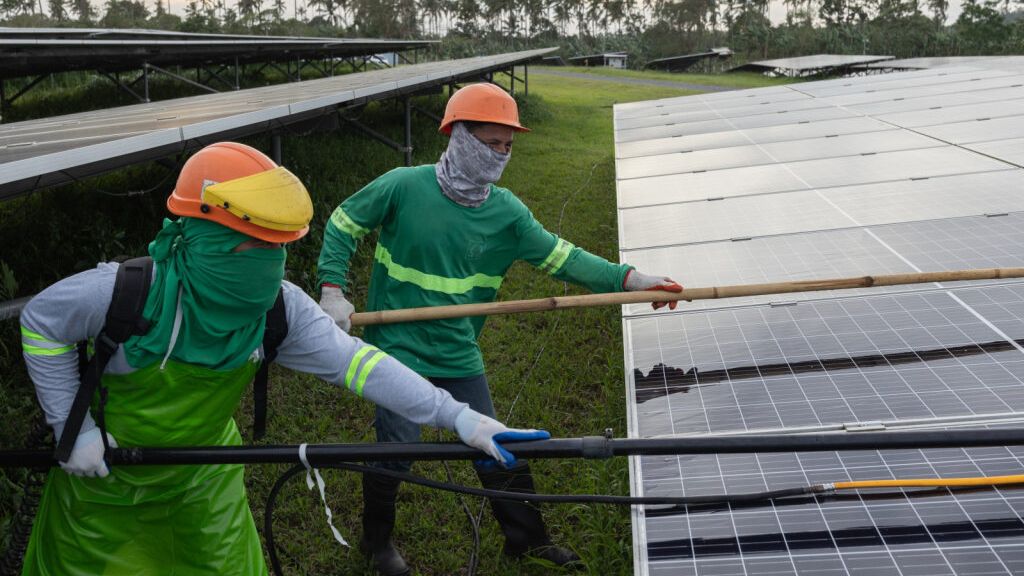
We generate green jobs for the community in areas where we operate.
Total investments for livelihood creation and support
P14.6 million
Thriving communities are the heart of sustainable progress, and we are committed to empowering them through meaningful livelihood opportunities. More than just providing aid, we invest in skills, resources and long-term economic self-sufficiency. By integrating livelihood programs into our renewable energy projects, we are not only generating green jobs but also fueling economic growth in our communities.
Alignment to SPI:
Basic Human Needs, Foundations of Well-being, Opportunity
Contribution to SDGs:
1, 5, 8, 19, 17
Philippines initiatives:
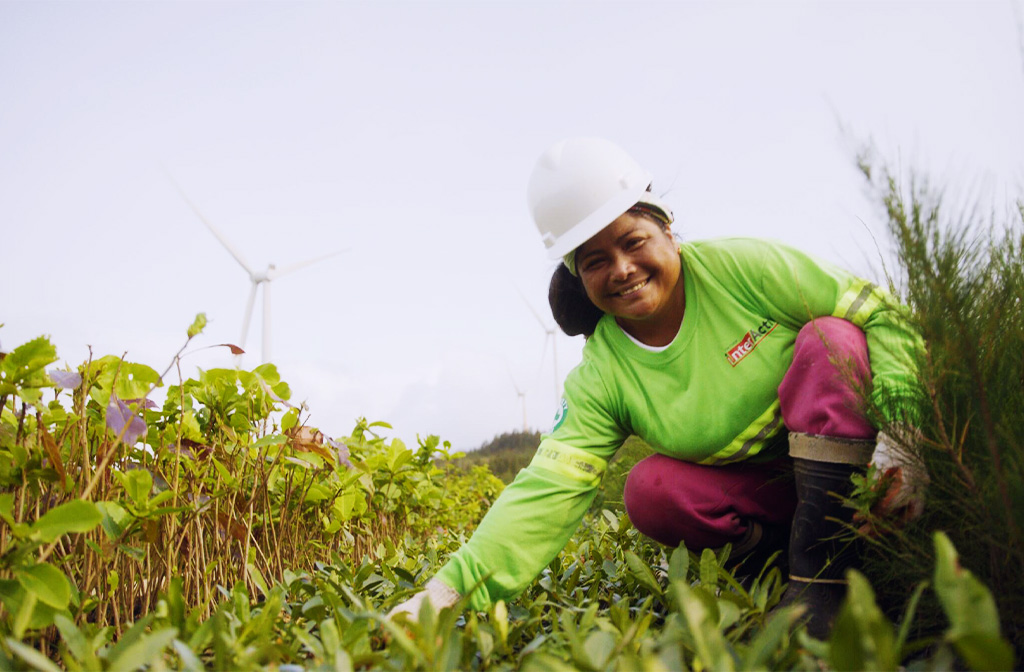
Australia initiatives:
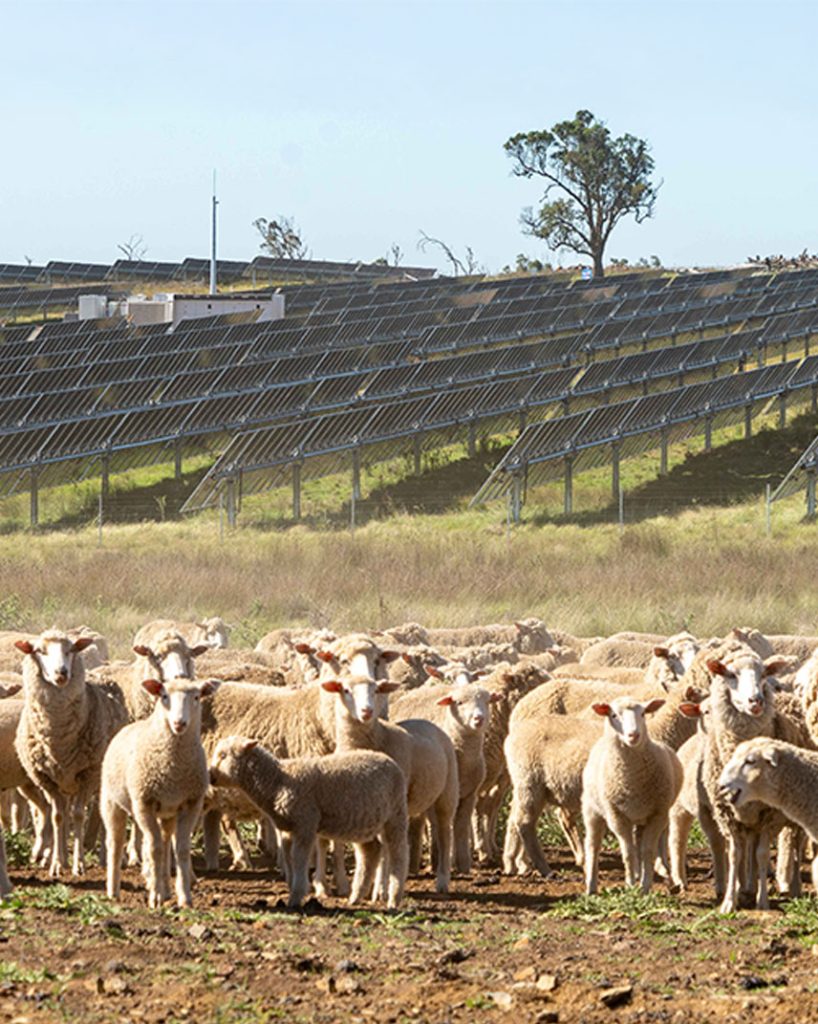
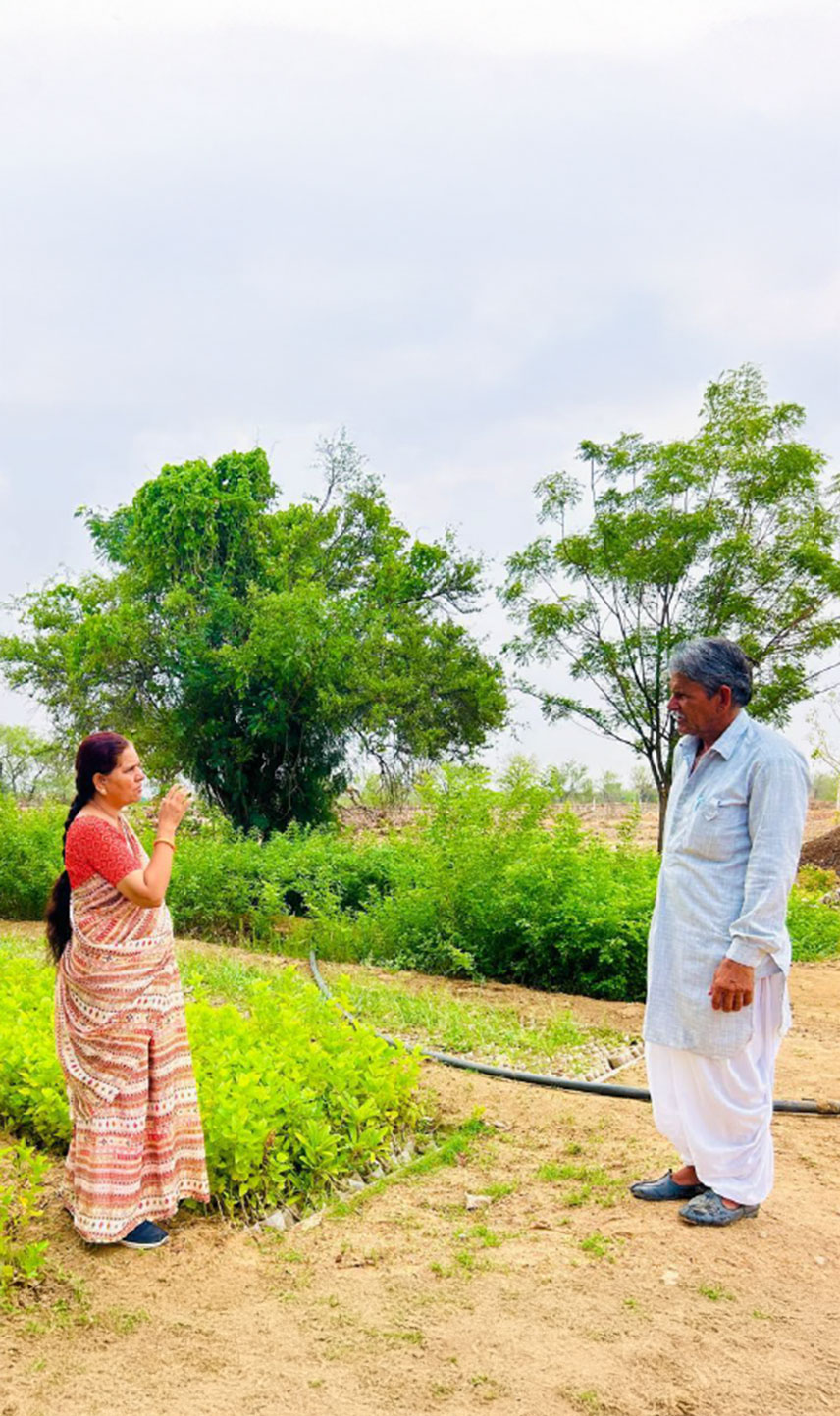
India initiatives:
Vietnam-Lao PDR initiatives:
Indonesia initiatives:
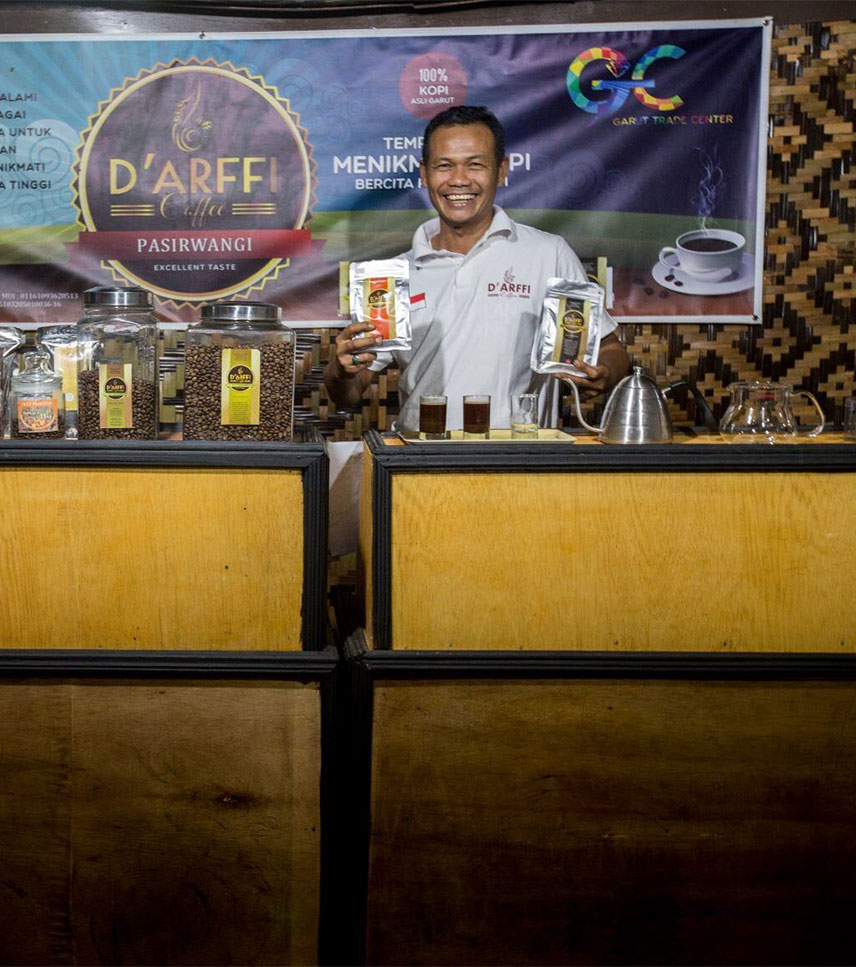
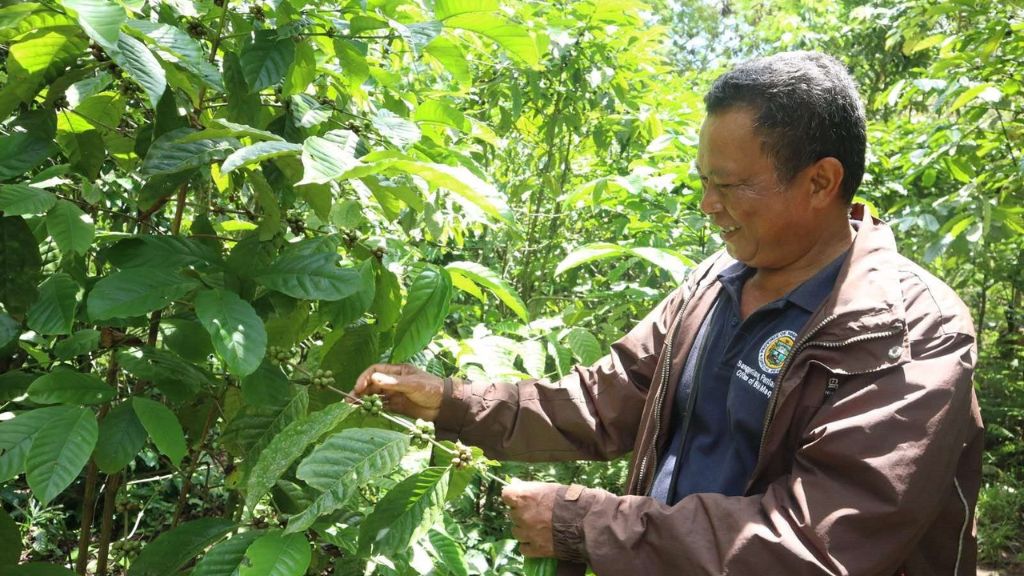
Moving forward
We intend to integrate upskilling programs and promote social entrepreneurship to equip communities with the skills and resources needed to establish sustainable enterprises. By fostering economic self-sufficiency, we aim to build lasting and resilient communities.
Community infrastructure
As we expand our renewable energy footprint, we also evaluate our potential social impact. From the early development stages of our projects, we proactively identify opportunities to build infrastructure that not only supports our operations but also directly benefits host communities. Infrastructure plays a crucial role in community well-being. Safe roads improve accessibility, reliable lighting enhances security, health facilities strengthen emergency response and educational infrastructure supports future generations. Each project, whether large-scale or small, serves as an investment in the quality of life of our host communities.
Alignment to SPI:
Basic Human Needs, Foundations of Well-being, Opportunity
Contribution to SDGs:
7, 9, 11, 13, 17
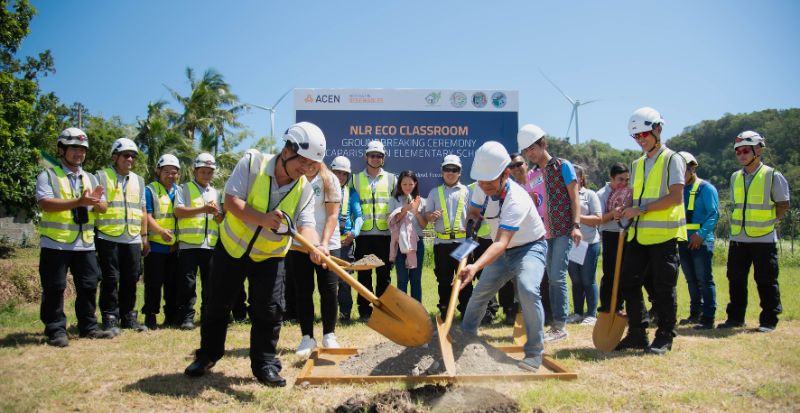
In Ilocos Norte, we are building eco-classrooms made of upcycled materials such as eco-bricks.
Strategic approach and SPI alignment
Philippines initiatives:
Global contributions
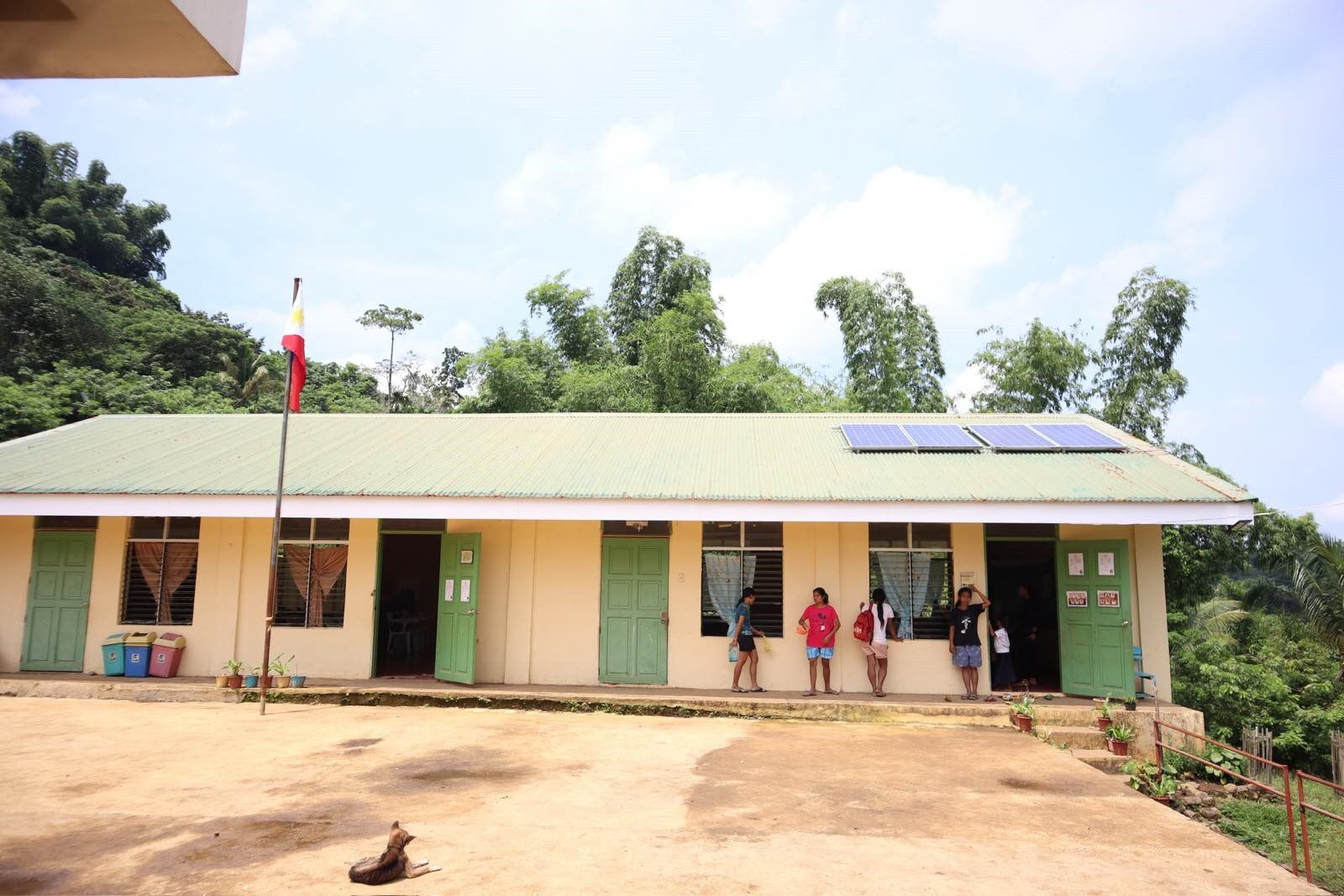
We installed rooftop solar panels at Haguimit Elementary School in La Carlota City, Negros Occidental, as part of IslaSol’s Solar Pailaw Program to address the lack of power supply in the school.
Moving forward
As we continue to expand, our commitment to increasing access to essential facilities remains a priority. We aim to integrate upcycled materials in infrastructure projects wherever possible and further align our initiatives with SPI objectives. By embedding sustainability into community development, we not only reduce environmental impact but also create lasting benefits for future generations.
Education
We believe in the transformative power of education to break cycles of poverty and inequality. Our investments in education go beyond immediate access; we focus on long-term sustainability, equipping both students and teachers with the knowledge and tools to drive positive change.
Alignment to SPI:
Foundations of Well-being, Opportunity
Contribution to SDGs:
4, 5, 8, 10, 17

Through our Monsoon Wind project in Lao PDR, we awarded 10 initial scholarships to local students to study at a partner university in Thailand.
Strategic approach and SPI alignment
Philippines initiatives:
Global contributions:
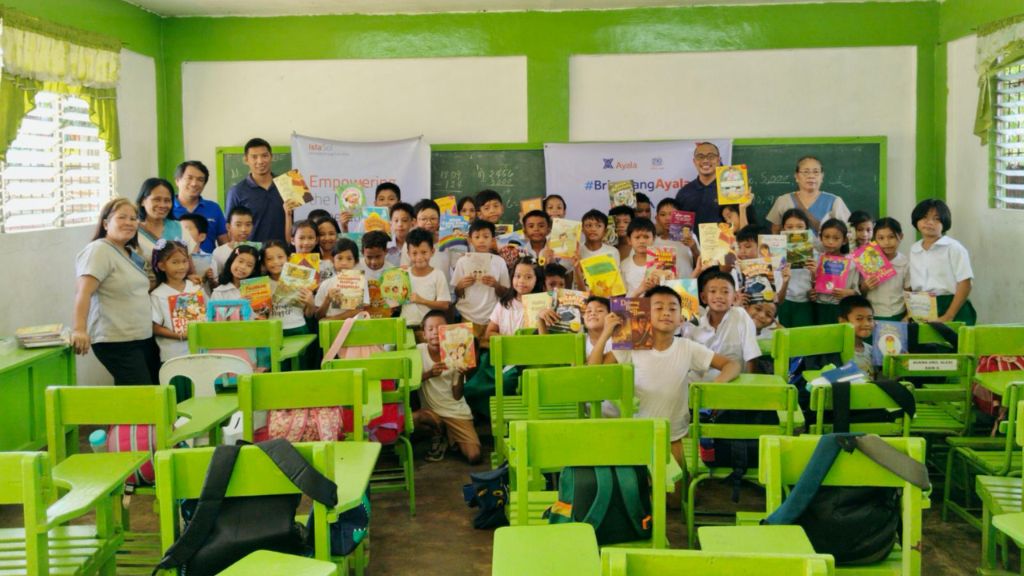
IslaSol, in partnership with Ayala Foundation and We Are Ayala Business Club – Negros, brought the joy of reading to over 200 pupils through the “Brigadang Ayala Open Book” literacy initiative across three elementary schools in Negros Occidental.
Moving forward
We are committed to strengthening our education programs by integrating sustainability and climate action into school curricula. Moving forward, we will strengthen partnerships with educators, local governments and community organizations to enhance environmental literacy and develop innovative programs that promote renewable energy awareness.
Empowering
Indigenous Peoples
We are deeply committed to protecting and empowering Indigenous Peoples (IP) across our markets, ensuring that progress uplifts rather than displaces. Our approach goes beyond support—we champion their right to quality education, healthcare and economic opportunities while safeguarding their cultural heritage. Through meaningful collaboration, we strive to create a future where Indigenous communities are not only recognized but thrive as vital partners in shaping a more equitable and sustainable world.
Alignment to SPI:
Basic Human Needs, Foundations of Well-being, Opportunity
Contribution to SDGs:
1, 4, 5, 8, 10, 16, 17
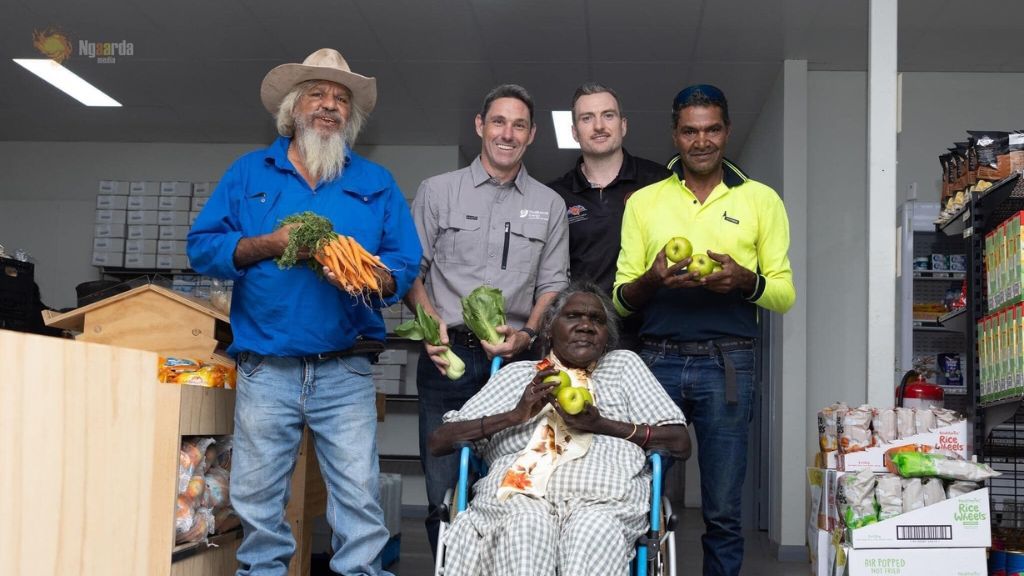
In 2024, Yinjibarndi Energy Corporation (YEC) partnered with Ngarluma Yindjibarndi Foundation Ltd (NYFL) to work together on activities that provide social outcomes and enhanced self-determination for the Ieramugadu (Roebourne) Traditional Owner community in Australia.
Strategic approach and SPI alignment
Philippines initiatives:
Global initiatives:
Moving forward
We will continue to strengthen programs across infrastructure, healthcare, livelihood and training, ensuring they are tailored to the distinct needs and aspirations of each community. By working closely with Indigenous leaders, we aim to build long-term partnerships that foster economic independence, cultural preservation and overall well-being.
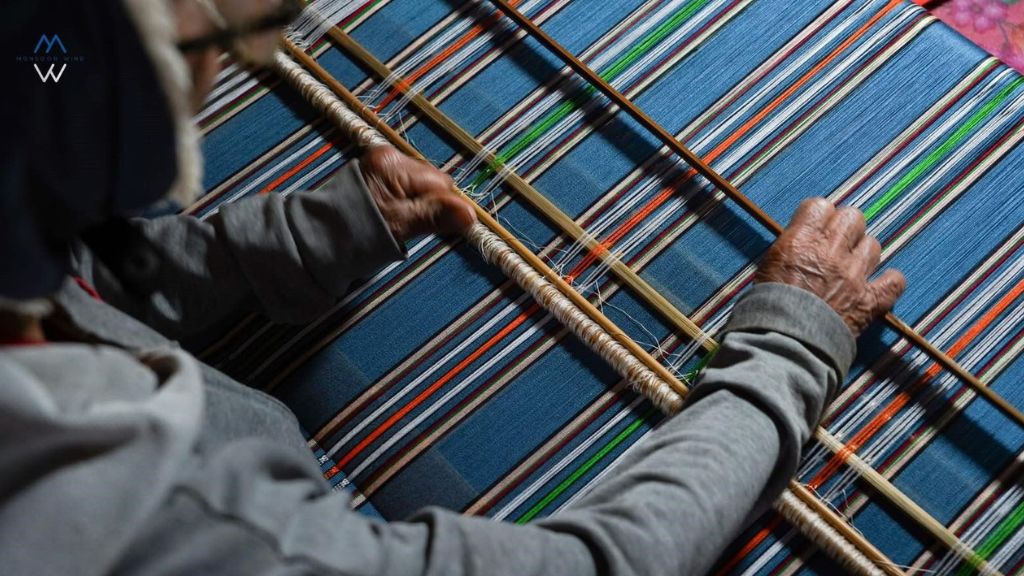
Monsoon Wind supports local skilled craftsmen from Dak Cheung district in Lao PDR in creating unique trial textiles and handicrafts.
Health and wellness
Through partnerships with local government units, health organizations and private organizations, we strive to improve healthcare access, promote wellness and support long- term health programs for our communities. Our initiatives cater to various segments of the population: children, youth, women, senior citizens and the broader community, ensuring that everyone has the opportunity to lead healthier lives.
Alignment to SPI:
Basic Human Needs, Foundations of Well-being
Contribution to SDGs:
2, 3
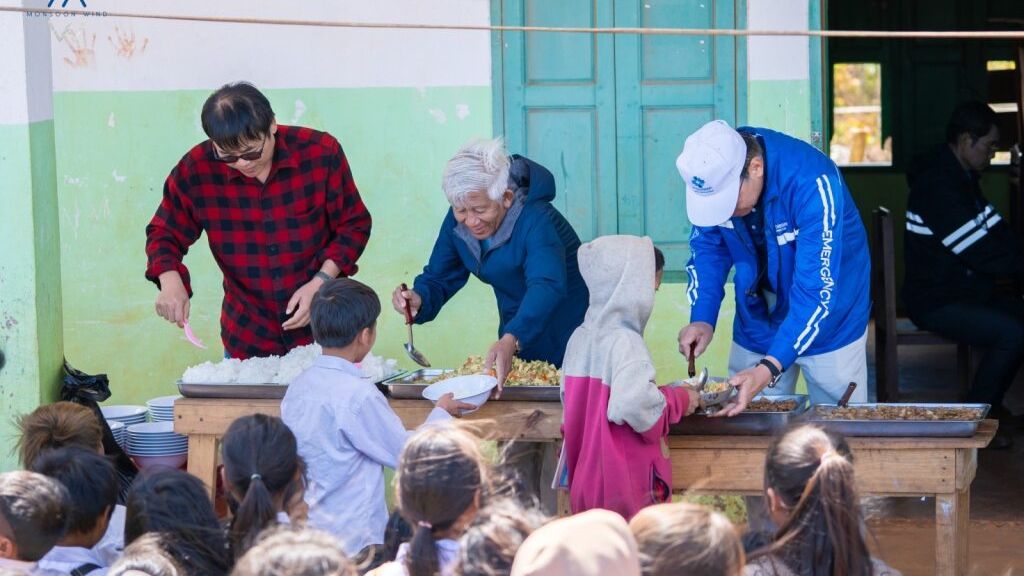
In Lao PDR, Monsoon Wind continues to focus on regular health check-up and feeding program campaigns for its host communities.
Strategic alignment
Philippine initiatives
Global initiatives
Moving forward
We will continue to strengthen our health and wellness initiatives by expanding healthcare access, enhancing nutrition programs and promoting active lifestyles. Through sustained partnerships with local governments, health organizations and private sectors, we aim to scale up medical support, improve water and sanitation systems and introduce more community-driven wellness activities.
By integrating innovative approaches and broadening our reach, we remain committed to fostering healthier, more resilient communities across our project sites.
Climate change and emergency responses
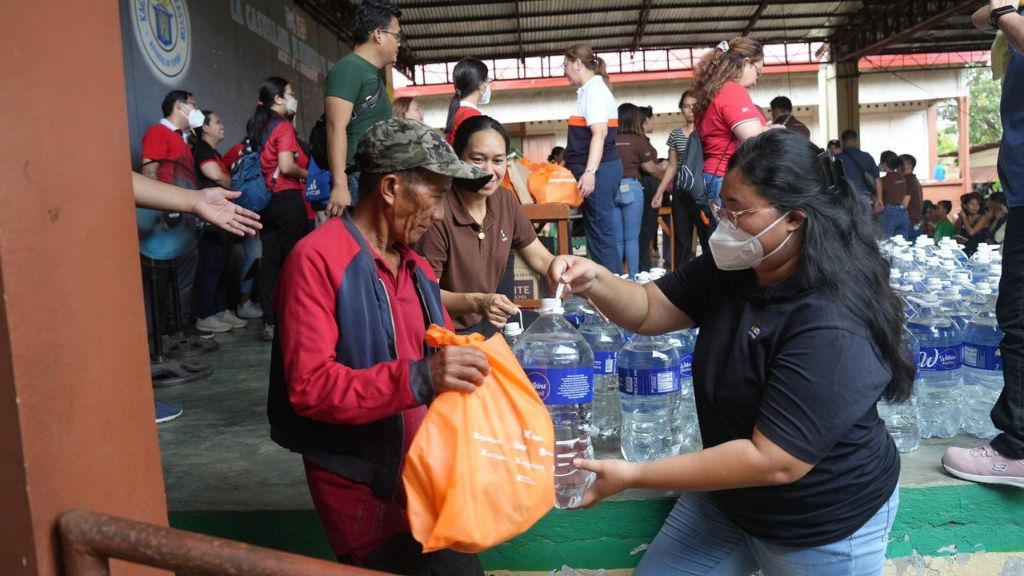
ACEN volunteers joined the Brigadang Ayala led by Ayala Foundation in distributing aid for victims of the Kanlaon Volcano eruption in Negros, Philippines.
The Philippines, our home market, faces some of the world’s most severe natural disasters. This vulnerability to climate change drives our commitment to disaster resilience and environmental stewardship. Beyond sustainability, we equip communities with the skills, resources and infrastructure to withstand and recover from climate crises, ensuring they do not just adapt—but thrive.
Alignment to SPI:
Basic Human Needs, Foundations of Well-being
Contribution to SDGs:
11, 13, 17
Investments in disaster preparedness and response efforts for local communities in the Philippines
P7.4 million
Strategic approach and SPI alignment
Philippines initiatives:
Global initiatives:
Moving forward
We remain committed to strengthening collaborations with stakeholders and local partners to develop and implement initiatives that bolster disaster preparedness and climate resilience. Through continued investments in education, training and essential emergency equipment, we aim to empower individuals and families to effectively respond to crises while promoting sustainable environmental conservation.
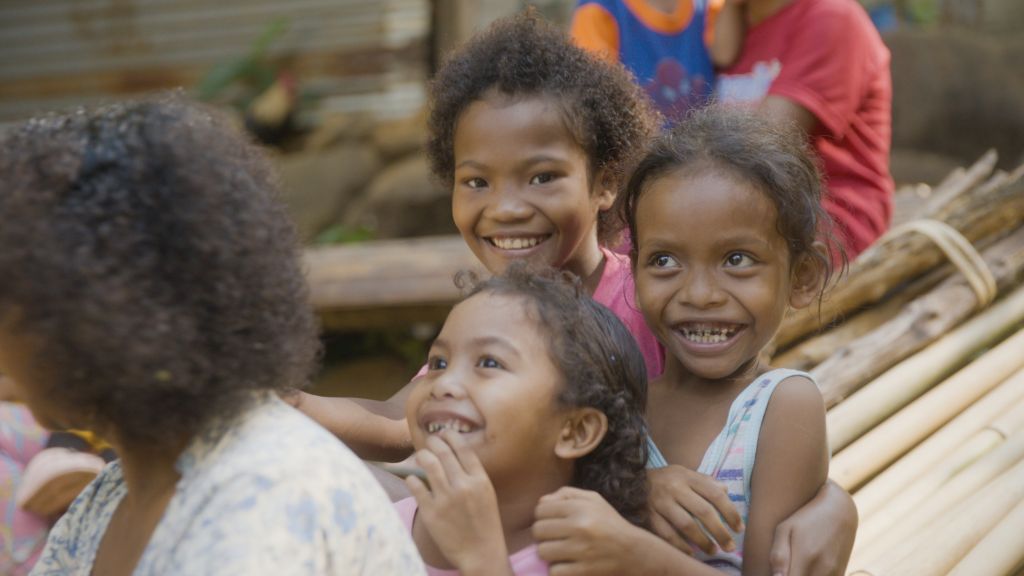
We tailor fit our social programs based on the needs of our host communities.
Ensuring the relevance of our programs
We engage affected communities and local government units throughout the lifecycle of our plants and establish information dissemination, consultations, grievance mechanism and reporting procedures to understand and address their concerns.
During the early development phase, we conduct consultations to gather views on project risks, impacts and mitigation measures using various methods such as interviews with stakeholder representatives, public meetings, focus group discussions and surveys, ensuring that we enable culturally appropriate measures and provide opportunities for two-way dialogue. Our grievance mechanism covers the procedures to receive, screen, resolve, monitor and report grievances from host communities to facilitate resolution of their issues. Through these modes of engagement, we minimize risks, obtain consent and support from our stakeholders and create shared value as we build and operate projects.
Before constructing any project, we conduct comprehensive Environmental and Social Impact Assessments (ESIA) and develop detailed Environmental and Social Management Plans (ESMP). These ensures that potential risks and impacts are fully understood and managed effectively. For instance, we determine if involuntary resettlement or economic displacement will occur because of the project. In the case of physical displacement, we provide compensation, through either property resettlement or cash, and full replacement cost for land and other assets lost. For areas of operations near ancestral domains or Indigenous lands, we engage Indigenous Peoples (IPs) as part of our social assessment and stakeholder engagement process, ensuring that we comply with regulatory requirements and develop meaningful programs that address their specific needs.

The Yapayao Tribe in Ilocos Norte is among the Indigenous Peoples we protect and support in our areas of operation.
Measuring impact through
the Social Progress Index (SPI)
In 2023, we partnered with RiShift, a consultancy firm known for helping organizations embed sustainability into their core business strategies, to adopt the Social Progress Index (SPI). The SPI is a critical tool in guiding our decision-making and optimizing resource distribution, ensuring that our strategies and actions are finely tuned to the needs of the communities we support. We are adopting the SPI framework to ACEN’s unique operational context, ensuring that our efforts are measured against both global standards and local realities. We built the foundation and mapped our programs to align with SPI’s dimensions and components.
The SPI has three dimensions composed of the following:
2024 updates
We started to shift our focus from tangible outputs to outcomes that reflect real improvements in community well-being. We assessed all our sustainability programs implemented across all sites to see which types of strategic programs we allocate our resources to. This assessment will guide our decision-making and optimize resource distribution, ensuring that our actions are finely tuned to the needs of the communities we serve.
We invested ₱222 million in community programs. Out of the 393 initiatives implemented across all projects sites, we completed the resource allocation baseline as follows:
Additionally, we began developing a Theory of Change (ToC) for our sustainability programs by actively engaging with community stakeholders. This framework outlines clear pathways from inputs to long-term outcomes and sets both short- and long-term targets that contribute to the SDGs. Our ToC is dynamic, evolving through ongoing assessments, stakeholder feedback and new insights, capturing our host communities’ needs and aspirations and providing the foundation for selecting outcome-based metrics.
In 2025, we will continue refining our approach and strengthening our capacity to capture outcomes over outputs. This includes standardized data collection and continuous stakeholder engagement to ensure that our strategies remain responsive and impactful.

